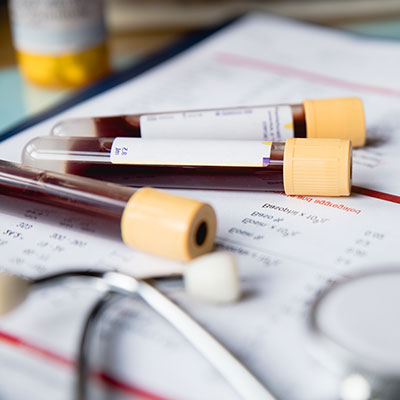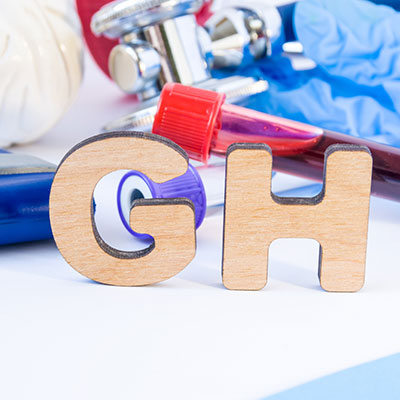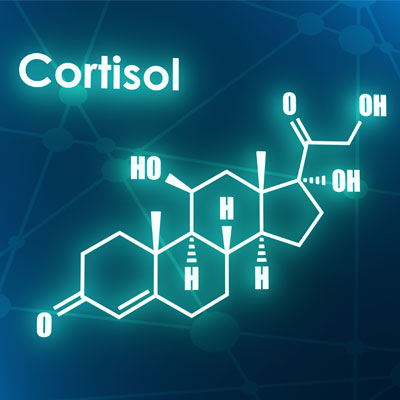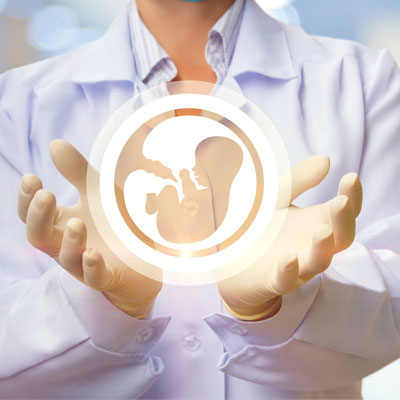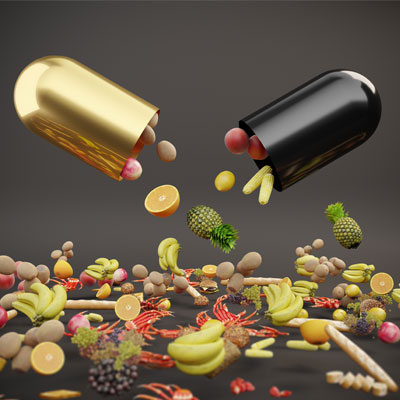Contents
- How Is Growth Hormone Controlled in The Body?
- Is Human Growth Hormone Released During Sleep?
- Why Is Human Growth Hormone Important to Men and Women?
- What Are the Benefits of Human Growth Hormone?
- What Happens to Your HGH Levels As You Get Older?
- What Happens If I Have Too Much Growth Hormone?
- What Happens If I Have Too Little Growth Hormone?
- How Are HGH Levels Tested?
- What Is Growth Hormone Replacement Therapy?
- Is Using Human Growth Hormone Safe?
- Risk Versus Benefits of Using HGH
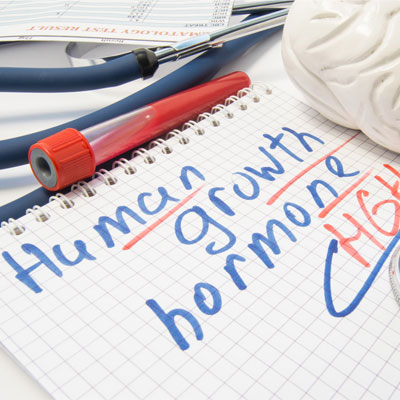
Although HGH is critical in the process of a child growing normally into an adult, it still plays a vital role throughout our lives. HGH is vital to almost every metabolic process your body requires.
How Is Growth Hormone Controlled in The Body?
Growth hormone is produced by the pituitary gland. The pituitary has been called the, “Trusted sourceOverview of the Pituitary GlandMerck Manual Consumer VersionGo to sourcemaster gland ” because it secretes hormones that control the actions of other glands. A part of your brain called the hypothalamus, signals to the pituitary gland to produce HGH.
The hypothalamus reacts to the level of HGH in your bloodstream. It will “tell” the pituitary to produce more or less HGH in response to the level in your blood.
Is Human Growth Hormone Released During Sleep?
It has been estimated that nearly 75 percent of human growth hormone is released during sleep. In most healthy adults, the majority of HGH is released when you reach deep sleep, or “Trusted sourceBrain Basics: Understanding SleepNational Institute of Neurological Disorders and StrokeGo to sourceStage 3 Sleep .” Stage 3 Sleep typically occurs about 60 – 90 minutes after you first fall asleep. It is during this stage of sleep that your body repairs and regrows tissues, builds bone and muscle, and strengthens the immune system by releasing HGH.
Since most HGH is released during deep sleep, if you have trouble sleeping, it can severely impact your HGH levels. Poor sleep and low HGH are linked.
Why Is Human Growth Hormone Important to Men and Women?
Growth hormone regulates most or all of the metabolic processes within your cells. It stimulates the liver to make the proteins that produces cartilage cells. This is essential for bone and organ growth, as well as building lean muscle. HGH stimulates all of the processes that allow a child to grow to an adult of normal stature. It is important not only during childhood but for men and women well into adulthood.
The main role of HGH in childhood is to stimulate bone and tissue growth. As you grow, it is HGH that makes your bones grow longer. Growth hormone also triggers the release of the insulin-like growth factor-I (IGF-I) protein, which stimulates the growth of muscles, organs and other tissues. HGH also contributes to proper bone density.
Once you are fully grown, HGH helps to maintain, build, and repair every cell and tissue in your body. Growth hormone is involved in healing after an injury, and the repair of muscle tissue after exercise. Therefore HGH helps to build muscle mass, boost metabolism, and burn fat.
Although HGH is a naturally occurring substance, it’s also available as an injectable medication for the treatment of growth hormone deficiencies.
HGH regulates or influences almost every metabolic process in your body.
What Are the Benefits of Human Growth Hormone?
When used to treat people with a growth hormone deficiency, or GHD, the benefits of human growth hormone can include:
- Increased energy
- Improved sleep
- Increased muscle mass
- Improved bone health
- Healthy skin
- Decreased fat, particularly belly fat
- Improved cognition
What Happens to Your HGH Levels As You Get Older?
Your body’s ability to produce HGH declines as you age. Even though we still need growth hormone as adults, HGH levels begin to naturally decline once we reach our 20s. Some people hardly feel the drop in HGH. But in others, it can lead to adult onset growth hormone deficiency.
What Happens If I Have Too Much Growth Hormone?
Growth hormone doctors usually treat men, women and children with too little growth hormone. However, you can also have too much growth hormone. Usually too much HGH is caused by disease or injury to the pituitary gland. Too much growth hormone can cause Trusted sourceWhat is Gigantism?Health LIneGo to sourcegigantism in children , making their bones and body grow beyond normal. In adults, it causes a condition known as acromegaly, which makes the hands, feet and face larger than normal. Treatments for too much HGH depend on the cause of the increased production. Such treatments may include surgery medications, or radiation therapy.
What Happens If I Have Too Little Growth Hormone?
Too little growth hormone or a growth hormone deficiency (GHD) is far more common than having too much HGH. Children and adults can have GHD. In children, GHD is usually caused by a genetic condition, or disease, or injury to the pituitary.
Disease or injury can also lead to GHD in adults. However, GHD in adults is usually caused by the steady decline of growth hormone that occurs as we age. The signs and symptoms of growth hormone deficiency in adults include:
- Decreased energy
- Loss of joy in life
- Decreased sex drive
- Poor hair and skin health
- Immune system issues
- Weight gain leading to a pear shape
- Memory loss and other cognitive difficulties
- Bone loss and bone weakness
- Depression, anxiety and other emotional changes
Human Growth Hormone levels decrease as you age. As you get older you may experience the impact of growth hormone deficiency.
How Are HGH Levels Tested?
Growth hormone levels are determined using a blood test. In a HGH serum test, a sample of you blood is drawn and your HGH levels are analyzed. The results of a growth hormone serum test only show the level of HGH in your blood at the single point in time when your blood sample was taken.
This is why your doctor may order another kind of diagnostic test for growth hormone deficiency, called a “growth hormone simulation test.”
The growth hormone stimulation test is used to determine pituitary function. Amino acids are introduced to your blood that are supposed to trigger your pituitary to release HGH. After injecting the amino acids doctors will take samples of your blood at different intervals, to see if you are producing the normal amounts of HGH.
What Is Growth Hormone Replacement Therapy?
The best way treat adults or children with too little HGH is with growth hormone replacement therapy. Growth hormone therapy is given via injections. Growth hormone therapy uses prescription medications that are a form of genuine human growth hormone, made form recombinant DNA. That means that HGH injections are the same as the growth hormone made by your own body. This is why growth hormone replacement therapy is the safest, and the most effective treatment for children or adults with GHD.
For children who have GHD, HGH replacement hormone therapy is the best way to help them achieve their growth milestones and reach their normal stature.
For adults who are experiencing the signs and symptoms of low HGH levels growth hormone deficiency, growth hormone therapy can:
- Help you lose weight
- Increase energy and stamina
- Improve cognitive functions
- Improve mood
- Increase libido and improve sexual performance
- Strengthen bones, and fight osteoporosis
There are some other well documented benefits of growth hormone therapy for adults. These include:
- Lowing the risk of stroke or heart attack
- Lowering cholesterol
- Overall improved quality of life
Growth Hormone Replacement Therapy can effectively treat children and adults with a growth hormone deficiency.
Is Using Human Growth Hormone Safe?
When prescribed by a doctor to treat GHD, the use of HGH is generally regarded as safe. However, as with any prescription medication, it can have some side effects.
Some of the more general side effects of growth hormone injections include:
- Pain in the Joins
- Redness in the area of injection
- Headaches, light headiness or vertigo
Some of the less common side effects of HGH include:
- Carpal tunnel syndrome
- Increased insulin resistance
- Swelling
- Craggy or “creepy” skin
- Hair loss
- Earaches
- Increased sensitivity to cold
While the above list may seem huge, most growth hormone replacement patients have a very positive experience and run the course of their growth hormone therapy with little or no side effects.
Risk Versus Benefits of Using HGH
As with any kind of medical procedure, when you are considering HGH replacement, you need to weigh the potential risks vs the benefits. For most patients with GHD, the benefits of growth hormone therapy far outweigh the risks.
Chances are, you will experience few if any side-effects from growth hormone therapy.
Weigh that against the benefits of:
- Increased strength
- Increased stamina
- More energy
- Increased ability to burn fat and build muscle
- Healthier skin and bones
- Jesús Devesa, MD, PhD, Cristina Almengló, Pablo Devesa, PhD
- Andrea Esposito, Dr. Donatella Capalbo, Lucia Di Martino, Martina Rezzuto, Claudio Pignata, MD, PhD, Raffaella Di Mase, Mariacarolina Salerno
- Jörgen Isgaard, MD, PhD, Dr. Michele Arcopinto, Kristjan Karason, Antonio Cittadini
- Editors: Irina Bancos, M.D., Alan Rogol, M.D., Linn Goldberg, M.D.
- Martin Bidlingmaier, Christian J Strasburger
- Nicoleta Cristina Olarescu, MD, PhD, Kavinga Gunawardane, MD, MRCP, Troels Krarup Hansen, MD, PhD, Niels Møller, MD, DMSc, and Jens Otto Lunde Jørgensen, MD, DMSc.
- Dr. Ananya Mandal, MD, Reviewed by Sally Robertson, B.Sc.
- Emily Cronkleton, Medically Reviewed by Lindsay Slowiczek, Pharm.D.
Multiple Effects of Growth Hormone in the Body: Is it Really the Hormone for Growth?
Long-term effects of growth hormone (GH) replacement therapy on hematopoiesis in a large cohort of children with GH deficiency
GH and the cardiovascular system: an update on a topic at heart
Normal Physiology of Growth Hormone in Adults
Side Effects of HGH: What You Should Know



